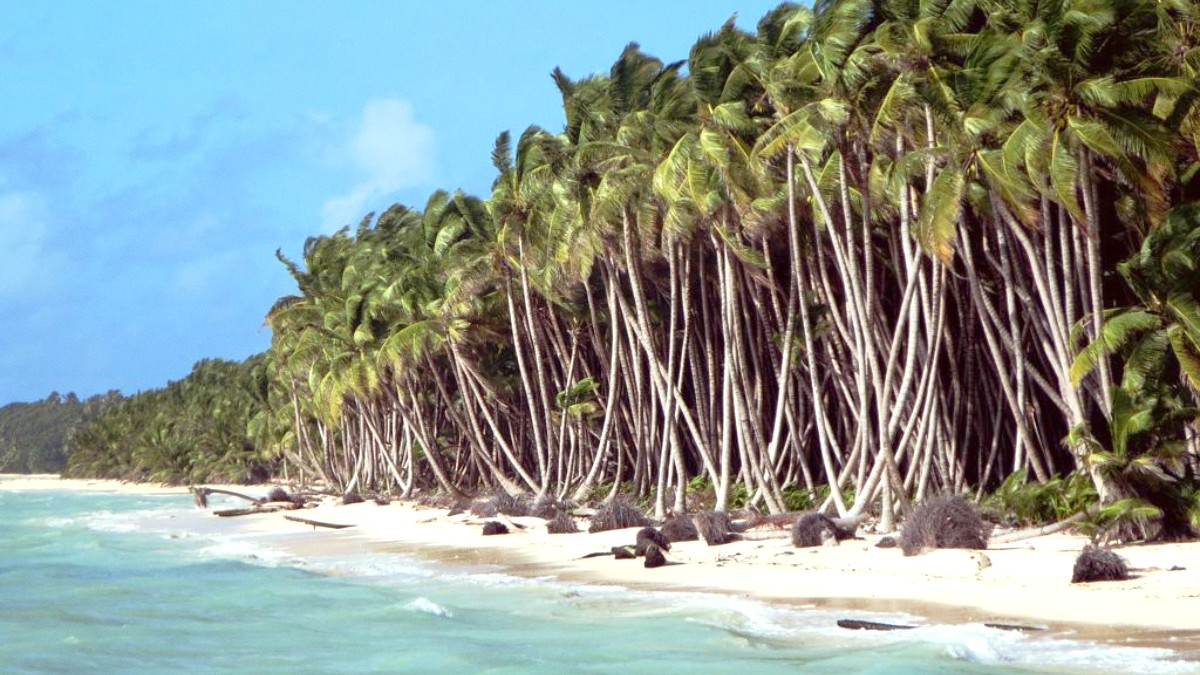
Australia
The Cocos (Keeling) Islands feature a tropical climate, with warm temperatures and humidity year-round. Two main seasons shape the weather patterns. These influence the travel experience.
The Trade Wind Season (Dry Season) runs from May to October. Temperatures typically range from 24°C to 29°C (75°F to 84°F). Humidity levels remain lower, and consistent southeasterly trade winds bring a refreshing breeze. Rainfall is generally less. The Doldrum Season (Wet Season) extends from November to April. Temperatures rise slightly, 26°C to 31°C (79°F to 88°F). Humidity becomes higher, and winds are more sporadic. Heavier rain showers are possible, though often in brief bursts.
The Doldrum Season (November to April) also marks the tropical cyclone season. Direct hits on the Cocos (Keeling) Islands are rare, but passing cyclones can bring strong winds, heavy rain, and rough seas. Such weather events might disrupt flights and planned activities. Always monitor local weather advisories.
While the climate is consistently tropical, heat and humidity can reach high levels during the Doldrum season. Take precautions against heat exhaustion. Drink plenty of water and seek shade during the hottest parts of the day.
Doldrum Season
Calmer outer reefs for diving/fishing, fewer crowds, potentially lower prices.
Higher humidity/heat, increased rainfall, tropical cyclone risk.
Transitional Periods
Fewer crowds, possible lower prices, often good weather.
Weather can be unpredictable, mixed conditions are possible.
Trade Wind Season
Pleasant temperatures, lower humidity, consistent breeze, ideal for watersports.
Flights and accommodation book out in advance, potentially higher prices.
The Cocos (Keeling) Islands operate as an external territory of Australia. This means entry rules are the same as for mainland Australia.
No specific entry fees for the Cocos (Keeling) Islands beyond standard Australian visa application fees.
Procedures match those for entering Australia. Arrivals clear customs and immigration on West Island.
Visiting this protected area needs a special permit. Visit with a licensed tour operator.
No mandatory vaccinations, except if arriving from a yellow fever risk country.
Standard Australian health declarations apply to all arrivals.
Due to their remote location, some items and services are more expensive than on mainland Australia.
The official currency is the Australian Dollar (AUD). One ATM is available at the Post Office on West Island. It is advisable to withdraw sufficient cash upon arrival. EFTPOS (electronic funds transfer at point of sale) is not universal, and internet connectivity for card payments is unreliable.
Prices fluctuate based on seasonality and booking time. These are estimates.
Tap water on West Island is desalinated and generally safe to drink. On Home Island, bottled or treated water is advisable. The Cocos (Keeling) Islands have an extremely low crime rate. It is a very safe destination.
Utilize these resources for your trip planning.
For visa and entry services, several online platforms assist with applications and information for various nationalities. Travel insurance options also stand ready for adventurous travelers, including those with digital nomad lifestyles.
Health and safety products include water filtration devices, first aid supplies, and anti-theft bags. Services that aid with flight compensation claims are also available.
Navigating visa requirements for international travel can be complex. Services that specialize in consumer visa applications simplify this process, providing guidance and processing applications on your behalf.
Online application services are available.
Visa requirements vary by nationality.
Protecting your trip investment and health abroad is important. Travel insurance options provide medical and travel-related coverage. This helps against unexpected events during your journey.
Specialized coverage for adventurous travel and digital nomads.
Review policy details for coverage limits and exclusions.
Flight delays or cancellations can disrupt travel plans. Organizations specialize in helping passengers claim compensation for such disruptions. This service assists in navigating complex airline policies to get due compensation.
Potential compensation up to €600 for eligible flights.
Eligibility conditions apply based on regulations.
| Category | Resource | Description |
|---|---|---|
| Visas | IVisa, VisaHQ | Consumer visa application services. |
| Insurance | World Nomads, SafetyWing, Insubuy | Travel and medical insurance options. |
| Flight Aid | AirHelp | Assistance for delayed or canceled flight compensation. |